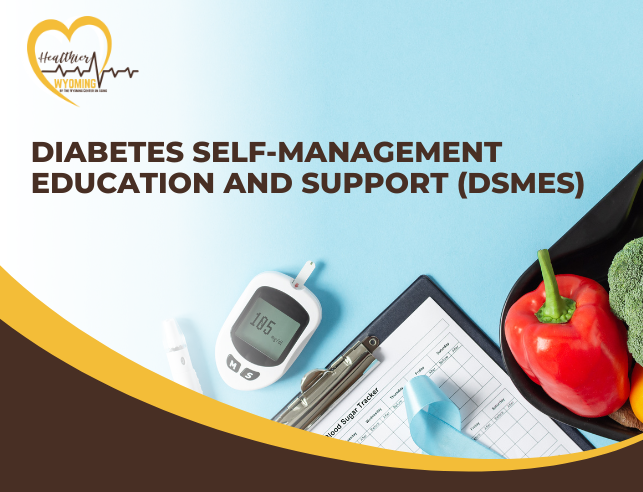Diabetes Self-Management Education and Support (DSMES) provides an evidence-based foundation to empower people with diabetes to navigate self-management decisions and activities. DSMES is a cost-effective tool proven to help improve health behaviors and health outcomes for people with diabetes.
An accredited or recognized DSMES service must meet evidence-based standards. The accreditation and recognition processes help ensure that services are offering quality education and make the services eligible for reimbursement from Medicare, many private health plans, and some state Medicaid agencies.
Watch this Video to Learn more!
There are four critical times to seek care for diabetes
1) When someone is diagnosed. 2) At a yearly check-in. 3) When a new challenge is presented, such as financial or emotional distress, medication change or complications. 4) When there are changes in a person’s health or healthcare: physicians, insurance, moving to a new location, or experiencing age-related issues.
FOR MORE INFORMATION OR TO FIND A PROVIDER NEAR YOU CONTACT HEALTHIER WY!
Diabetes Risk Factors
Type 1 Diabetes
Type 1 diabetes is thought to be caused by an immune reaction (the body attacks itself by mistake). Risk factors for type 1 diabetes are not as clear as for prediabetes and type 2 diabetes. Known risk factors include: Family history: Having a parent, brother, or sister with type 1 diabetes. Age: You can get type 1 diabetes at any age, but it’s more likely to develop when you’re a child, teen, or young adult. In the United States, whites are more likely to develop type 1 diabetes than African Americans and Hispanic/Latino Americans. Currently, no one knows how to prevent type 1 diabetes.
Type 2 Diabetes
According to the CDC: "Insulin is a hormone made by your pancreas that acts like a key to let blood sugar into the cells in your body for use as energy. If you have type 2 diabetes, cells don’t respond normally to insulin; this is called insulin resistance." [3].
You might be at risk of developing Type 2 Diabetes if you:
Have prediabetes
Are overweight
Are 45 years or older
Have a parent, brother, or sister with type 2 diabetes
Are physically active less than 3 times a week
Have ever had gestational diabetes (diabetes during pregnancy) or given birth to a
baby who weighed more than 9 pounds
Are African American, Hispanic/Latino American, American Indian, or Alaska Native
(some Pacific Islanders and Asian Americans are also at higher risk)
If you have non-alcoholic fatty liver disease you may also be at risk for type 2 diabetes.
National Diabetes Statistics
Total: 34.2 million people have diabetes (10.5% of the US population)
Diagnosed: 26.9 million people, including 26.8 million adults
Undiagnosed: 7.3 million people (21.4% are undiagnosed)
Wyoming Diabetes Statistics
In 2019, 7.8% of adults in Wyoming reported a diabetes diagnosis
For more information about thriving with a diabetes diagnosis click HERE!
take the next step! complete the information request form
Simple Lifestyle Changes Can Make Big Impacts! You can prevent or delay type 2 diabetes with simple, proven lifestyle changes such as losing weight if you’re overweight, eating healthier, and getting regular physical activity.
REQUEST MORE INFORMATION ABOUT GETTING A PROVIDER REFERRAL
Referrals for DSMES must come from a provider, but this form will put you in contact with an existing program near you, and will give you information on how to get a provider referral.
Diabetes Self-Management Education and Support (DSMES) for Providers



